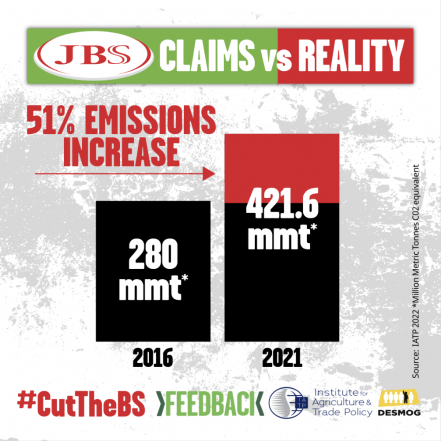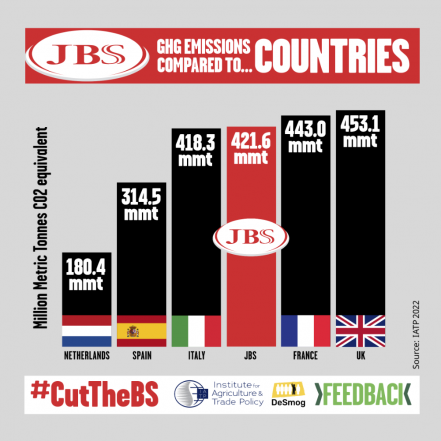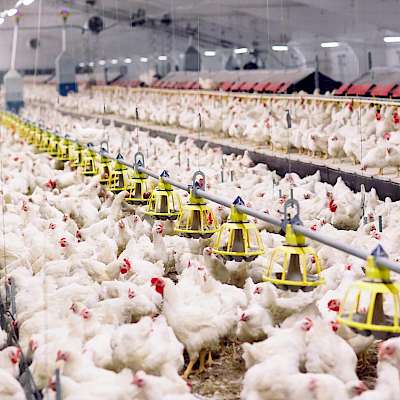Written by Christina O’Sullivan, Digital Campaigns & Communications Manager, Feedback
JBS is the world's largest meat company. You may not have heard of them, but you have probably at some stage eaten something supplied by them. JBS supply large chains such as Burger King, McDonald’s, Carrefour, Tesco and Walmart.
JBS claims to be tackling climate change but ultimately they want to increase their profits which will lead to more emissions. Companies recognise that people care about climate change so they publish ‘Climate plans’ filled with rhetoric such as ‘Committed to Net Zero’ and ‘Carbon offsetting’. At first glance, these climate commitments seem promising but when you dig a little deeper they turn out to be nothing but bullsh*t, a mere distraction from making any meaningful change.

Despite committing to be ‘Net Zero’ by 2040, JBS increased its annual greenhouse gas emissions by a whopping 51% between 2016 and 2021, from 280 million metric tonnes to 421.6 million metric tonnes, based on the Institute for Agriculture and Trade Policy (IATP)’s latest calculations. This means JBS is responsible for more GHG emissions than the whole of Italy!

The reality is that Big Livestock is inherently incompatible with a sustainable food future. For industrial livestock companies, the animals in their supply chains make up 90-97% of their emissions. Therefore, reducing emissions requires a significant reduction in livestock. But in order to deliver profit to their shareholders, large food corporations are focused on growth - when what we need is less and better meat. The animals in JBS’s supply chain in the past five years has increased substantially. The number of cattle has increased by 54%, pigs by 67% and chickens by 40%, resulting in an enormous increase in emissions. No true commitment to reducing emissions can co-exist with plans to increase meat production.
Moving beyond the BS - we need system change
Large food corporations claim to be feeding the world when in reality they threaten future food security. We urgently need to transition from industrial food production to agroecological production that works with nature not against it. The recent IPCC report was a timely reminder that without food system transformation we cannot tackle climate change.
